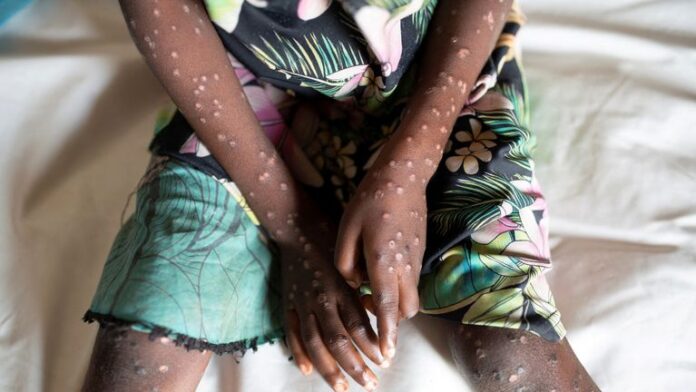By Lawrence Williams
The World Health Organisation on August 14 declared the outbreak of monkeypox (mpox) virus a “public health emergency of international concern”. This declaration follows a recent surge in reported cases across Africa, which the Africa Centres for Disease Control and Prevention (CDC) had previously labelled a “public health emergency of continental security.”
According to the Africa CDC, there has been a significant increase in laboratory-confirmed cases, with 517 deaths reported across 12 African countries since the start of the year. Suspected cases across the continent have surged past 17,000, with the Democratic Republic of Congo (DRC) labelled the epicentre of the outbreak.
WHO Director-General Dr Tedros Adhanom Ghebreyesus said there is an emergence of a new clade of the mpox virus (clade 1b) spreading in eastern DRC and its neighbouring countries – Burundi, Kenya, Rwanda and Uganda – which had not reported mpox cases before.
Professor Dimie Ogoina, chair of the International Health Regulations (IHR) Emergency Committee of independent experts, said a new “sexually transmissible” strain of the monkeypox virus has been detected in DRC and other parts of Africa. This strain requires global attention, and decisive action is necessary to prevent history from repeating itself.
Africa CDC Director General Dr. Jean Kaseya says the situation requires “swift and decisive action”, but however states that “there is no need for travel restrictions at this time”. He emphasised that the battle against mpox requires a global response, adding, “The world cannot afford to turn a blind eye to this crisis”.
Professor Salim Abdool Karim, chair of the Africa CDC Emergency Consultative Group (ECG), underscored the gravity of the outbreak. He said the situation could be more serious than currently understood due to limited surveillance and evidence. He also suggested that there could be a potential link between HIV and mpox, and attributed the rise in fatalities to this connection.
Following the declaration of mpox as a public health emergency, the Africa CDC has called on the international community to aid its response with the supply of vaccines to the affected countries.
The WHO had earlier on August 9 invited manufacturers of mpox vaccines to submit an expression of interest for emergency use listing (EUL) of their products. This move is intended to ensure safety and quality assurance and expedite access to unlicensed medical products like vaccines in public health emergencies, particularly for low-income countries which have not yet issued their own national regulatory approval.
In response, the European Commission’s Health Emergency Preparedness and Response Authority (HERA) and pharmaceutical company Bavarian Nordic have committed to delivering a total of 215,420 doses of European Medicines Agency-approved mpox vaccines to the CDC. This amount is reported to be far less than the doses required to put the outbreak under control, experts say.
On August 17, the Africa Centers for Disease Control and Prevention (Africa CDC) and Bavarian Nordic entered into a partnership aimed at significantly increasing the production of mpox vaccines in Africa. This collaboration promises to delivering 10 million doses by the end of 2025, in addition to supplying 2 million doses in the current year.
Mpox, caused by an Orthopoxvirus, was first identified in humans in 1970 in the Democratic Republic of the Congo. The disease is endemic to countries in central and west Africa. Transmission of mpox primarily occurs from animals to humans, but human-to-human transmission can also occur through contact with bodily fluids, skin lesions, or internal mucosal surfaces such as in the mouth or throat, respiratory droplets, and contaminated objects.




